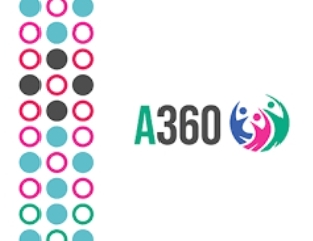Nafisa Murtala Ahmad
At just 17, Husaila Mubarak (not real name) had already learned to make herself small.
Growing up in the Kura Local Government Area of Kano State, her days were long and repetitive.
Before dawn, she helped her mother fry kosai, then spent afternoons fetching water for the household.
Her schooling ended abruptly in JSS 3, not due to a lack of interest, but because of financial hardship.
“In my mind, I told myself, maybe school is not for girls like me. I just accepted it because that is what I saw everywhere.
“Many girls in my community pass through this path: early marriage, early motherhood, and little room to choose differently from what my society affords me,” Husaila recalls.
Everything changed when a team of young women arrived in Kura, calling girls together under a neem tree near the local primary school.
They introduced themselves as mentors from the Adolescents 360 (A360) program.
“They looked confident and friendly. I had never seen girls my age talk like that before. It made me curious,” Husaila says.
Inside the A360 Girls’ Safe Space, she found peers who shared her fears, fear of early marriage, unintended pregnancy, and lack of understanding about their bodies.
Mentors explained reproductive health and contraception in a safe, relatable manner, emphasising that it was a tool to protect their health, not something shameful.
The program also encouraged participants to envision their futures.
Husaila began learning tailoring and financial literacy, giving her newfound confidence.
When her parents arranged her marriage, she spoke up: “I told them I want to finish my training first so that I can stand well before I start a family.”
After discussions with an A360 mentor, her father agreed. Today, Husaila is an apprentice tailor, saving weekly, and proudly asserts, “A360 taught me that my life is my own and I can choose the path I want.”
Solutions: How A360 Works
According to Hajara Aliyu, Adolescent Desk Officer at the Kano Ministry of Health, the A360 Amplify Project focuses on married adolescents aged 15 to 19, improving access to sexual and reproductive health services, including modern contraception, maternal and child health care, and youth-friendly ANC services.
The project uses community engagement, targeting husbands, mothers-in-law, and religious and traditional leaders to promote positive attitudes toward adolescent sexual and reproductive health.
“It also integrates human-centred design, generating insights from adolescents to create interventions aligned with their aspirations.
“Economic empowerment is embedded through vocational skills training, mentorship, and access to savings groups, helping girls achieve greater independence,” she stated.
Garba Haruna Idris, A360 Team lead, emphasises the program’s integration within government structures, from facility-level service providers to state health authorities, ensuring sustainability beyond the project lifecycle.
He said the program addresses barriers to contraceptive uptake, mobilises communities, and strengthens policy frameworks to allow adolescent sexual and reproductive health services to flourish.
Challenges: Barriers to Implementation
According to Idris, the program faces significant hurdles. “Funding remains largely donor-dependent, with minimal state support.
“Cultural and social norms often resist conversations about adolescent sexuality, while privacy concerns limit service uptake.
“There is also a shortage of skilled health personnel to provide adolescent-friendly services, and systemic demand-generation mechanisms must continually be strengthened to reach more girls,” he explained.
Policy Implications: Creating an Enabling Environment
A360’s work highlights the importance of multi-level collaboration for adolescent health. Engaging communities, religious leaders, and male partners helps shift societal norms, while integrating programs into government structures ensures sustainability.
Strengthening policies at local and state levels is crucial to institutionalise adolescent sexual and reproductive health services, address staffing gaps, and secure funding for long-term impact.
Impact by Numbers
Since its inception in Kano State:
•Over 5,000 married adolescent girls have been reached.
•More than 3,200 girls accessed reproductive health services.
•Over 1,500 participants received vocational training and mentorship, equipping them with skills for economic independence.
Through initiatives like A360, girls like Husaila are not just gaining access to health services—they are reclaiming their futures, challenging societal norms, and becoming agents of change in their communities.





